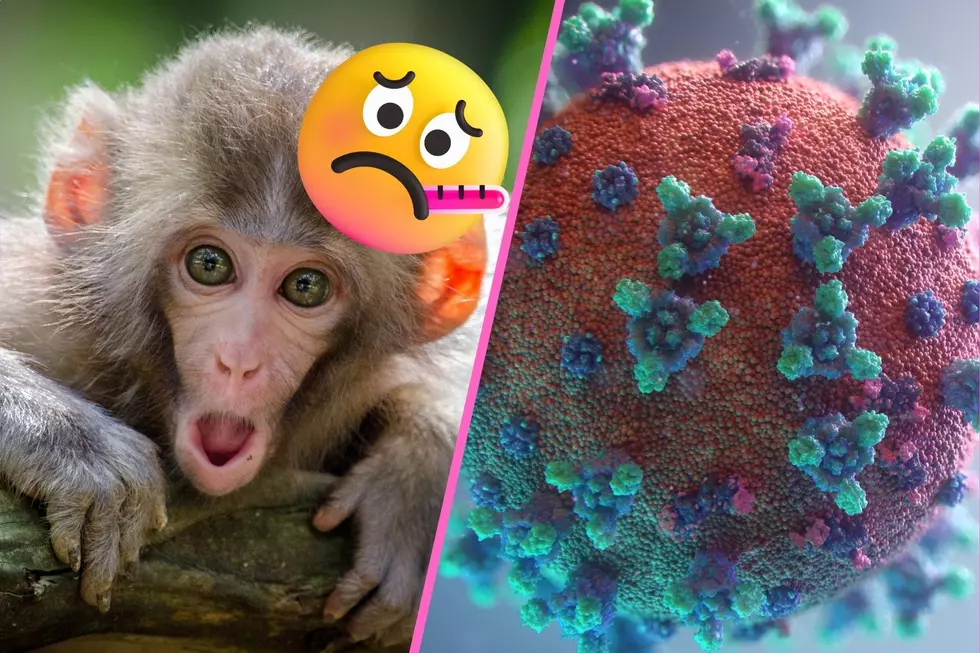
Monkeypox Case Confirmed in Massachusetts – But WTF is Monkeypox?
Monkeypox case confirmed in Massachusetts
Late yesterday evening, news broke that a case of Monkeypox was confirmed to have reached the United States and is hitting close to home, right here in New England in Massachusetts. According to WCVB Channel 5, the adult male recently traveled to Canada, where it's believed he came down with the disease. He's currently being hospitalized at Massachusetts General Hospital.
What is Monkeypox?
This is only the fourth time a case has been confirmed in the U.S., with two cases happening last year in July and November 2021, and the 47-case outbreak back in 2003.
Even though it sounds like a completely made up disease, Monkeypox is legitimate and, according to the CDC, has been around since 1958 but wasn't seen in humans until 1970 when a case was recorded in the Democratic Republic of Congo and has mostly only been seen in other central and western African countries. This is only the fourth time a case has been confirmed in the U.S., with two cases happening last year in July and November 2021, and the 47-case outbreak back in 2003.
How is Monkeypox transmitted?
According to the CDC, Monkeypox is actually pretty easy to transmit and can be passed from human to human, animal to human, or even infected material to human. It can be contracted like mostly other illnesses through the nose, mouth, or eyes, as well as exposure to broken skin and through the respiratory tract.
Signs and symptoms of Monkeypox
Because Monkeypox is such a rare disease in the States -- to the point that again, it doesn't even seem like a real thing unless you're a massive fan of the 1995 movie 'Outbreak,' most of us have absolutely zero clue what to even be on the lookout for when it comes to Monkeypox.
The CDC reports that symptoms of Monkeypox are similar to smallpox but milder, and also cause the lymph nodes to swell, which you don't find with a case of smallpox. The general incubation period for Monkeypox is 7-14 days but can actually last 5-21 days in some instances. In the early stages of contraction, the infected person will experience fever, aches in the head, back, and muscles in general, chills, exhaustion, and again those swollen lymph nodes earlier referenced.
Within 1-3 days of contraction, the CDC states that the patient will develop a rash, usually beginning on the face, with lesions following shortly after and going through several stages before scabbing up and falling off (just like chickenpox.)
So far, the patient at MGH is the only confirmed Monkeypox case in the area (and in the United States overall currently), and here's hoping it stays that way.




